Can anyone suggest a method to calculate customer waiting time for a restaurant based on previous waiting times. My system stores the waiting time of each customer and based on this values i want to predict the waiting time for next customer.
2 Answers
You can't predict an exact figure.
But a simple statistical approach would be:
average( waiting_time ) + ( 2 * standard_deviation( waiting_time ) )
That is, take the average and add two standard deviations.
Assuming that wait time is normally distributed, the result from the above equation is the maximum amount of waiting time that approximately 95% of your customers would experience.
- 628
- 1
- 4
- 13
-
thnx for replying.. can you tell me how you figured out this statistic...i would like to dig deeper into the same. – Shivang Doshi Jan 11 '13 at 10:36
-
1Any common statistics textbook will do. – Jacques Chester Jan 11 '13 at 12:03
-
2Note: For this purpose, you should be calculating SD with [Bessel's Correction](http://en.wikipedia.org/wiki/Bessel's_correction) as an estimate of true population SD. – Beetroot-Beetroot Jan 14 '13 at 10:45
A Poisson process is a stochastic process which counts the number of events and the time that these events occur in a given time interval. The time between each pair of consecutive events, for example, customer waiting time, has an Exponential distribution. From wiki:
The exponential distribution occurs naturally when describing the lengths of the inter-arrival times in a homogeneous Poisson process.
Prediction
Using maximum likelihood estimation, you can use the inverse sample mean to get the rate parameter of exponential distribution.

Confidence Interval
From wiki:
A simple and rapid method to calculate an approximate confidence interval for the estimation of λ is based on the application of the central limit theorem. This method provides a good approximation of the confidence interval limits, for samples containing at least 15 – 20 elements. Denoting by N the sample size, the upper and lower limits of the 95% confidence interval are given by:

For more details, see Poisson process and Exponential distribution.
- 15,956
- 5
- 50
- 80